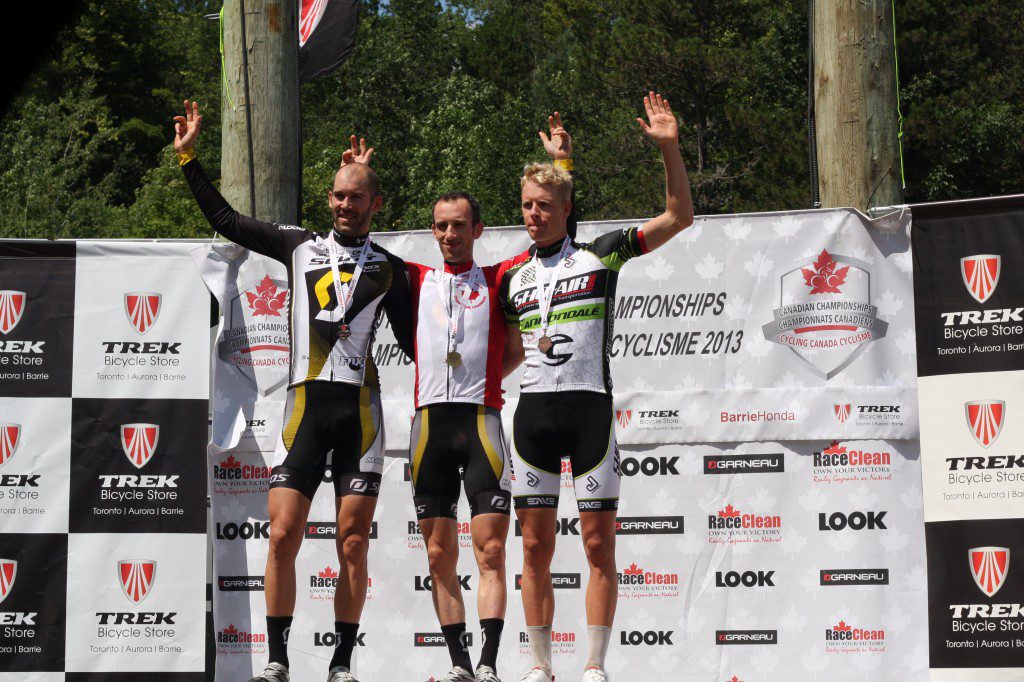Despite winning an appeal, Derek Zandstra isn’t heading to Rio
In spite of a double disappointment, Derek Zandstra is hoping to affect positive change for Canadian riders

On June 13, mountain biker Derek Zandstra got the email he was waiting for. It got his heart pounding harder than it usually does. It was either good news or bad news. Cycling Canada, the organization responsible for choosing athletes for the Olympic Games, was notifying cyclists whether they were going to Rio or not. “I read it,” Zandstra said. “It said, ‘Congratulations, you’ve been selected to the Olympics…’ and then it said, ‘…as an alternate.’ It was pretty disappointing.”
One of the first things Zandstra did was to forward the email to his Scott-3 Rox Racing team manager and coach Kyle Douglas. Neither of them were sure what to do. They consulted some lawyers, and appealed the decision the next day.
The two riders who were selected to represent Canada in the men’s cross country event in Rio were Raphaël Gagné and Léandre Bouchard. Zandstra felt that based on Cycling Canada’s own criteria, he merited a place on the start line in Rio in place of Bouchard. “One thing, I want to make clear: the appeal wasn’t anything on Léandre,” Zandstra said. “I have no problems with him. It’s on Cycling Canada.” (Cycling Canada was approached for comment on Zandstra’s appeal. Because the selection and appeal process is private, the organization will not comment publicly on such matters. Only if a case reaches the Sport Dispute Resolution Centre of Canada [SDRCC], does it become public.)
RELATED Canada’s Olympic cycling team announced
Zandstra and Douglas didn’t feel Cycling Canada followed the criteria it had set out for the Olympic selection process. They also felt the organization displayed bias. Part of the criteria included a rider’s performance at certain events, such as the world championships, World Cups and other UCI events. “There was also a list of things based that aren’t results-based,” he said. “How your riding is technically. How you start. How you work within a team—a bunch of stuff like that.”
The mountain biker said that he’d been told by a staff member at Cycling Canada that he was a pain to deal with at the 2015 Pan Am Games. “They said I sat at a table with the Americans instead of sitting with my own countrymen,” Zandstra recalled. “Meanwhile, our table was full already with staff and riders. I thought, ‘Wow, you’re really bringing sitting with other people as a reason.’”
The rider, however, argues that while he’s kept Cycling Canada up to date during the past few years, the organization has had exclusionary practices, such as not informing or inviting Zandstra to test events and projects.
After Zandstra and Douglas filed the appeal, Cycling Canada sent a report that was more than 100 pages to Zandstra’s lawyer. On July 7, there was a five-hour oral hearing via a conference call. The meeting included Zandstra, his lawyer, Cycling Canada’s lawyer, the arbitrator, members Cycling Canada’s mountain bike advisory group (Warren Lister, Aroussan Laflamme and Jacques Landry), members of the high-performance/selection committee (Guy Vincent, Arnold Boldt, Louis Barbeau and Robbi Weldon) national team coach Dan Proulx, even Léandre Bouchard.
“My lawyer was a bit of of a shark out there,” Zandstra said. “She did a really good job. Their lawyer basically wasted two hours of our lives. It then ended well for us. The arbitrator caught a lot of their mistakes within their rebuttal and questioned them on it all. We then got an email from the arbitrator. He wasn’t going to make the selection for us, but he reminded Cycling Canada that they have to follow the criteria. They had to redo the selection and follow the criteria and not weigh certain aspects of the criteria heavily, but to look at it all as a whole. He concluded that he didn’t see any bias, but it was close.”
The arbitrator’s decision came on July 11. The same selection committee reviewed the criteria the next day. On July 13, the day before the start of mountain bike nationals, the committee made a decision, which was the same as their first. Raphaël Gagné and Léandre Bouchard were going to Rio.
Following his second disappointment, Zandstra was resigned to his fate. He didn’t push the matter to the Sport Dispute Resolution Centre of Canada. Still, the case doesn’t exactly end there for the rider from Trenton, Ont. “There’s not a lot I can change for myself. It’s motivated me to get things changed at Cycling Canada,” he said. “It’s something that my team and I are keen to go after, to try and make sure there are changes for the better.” He’d like to see a focus on more objective criteria in such selection processes. He’d also like to see more openness to Canadian riders who pursue cycling careers that aren’t as closely tied to national team projects. “It could be a benefit in the long run, if we bring in new ideas,” he said.
